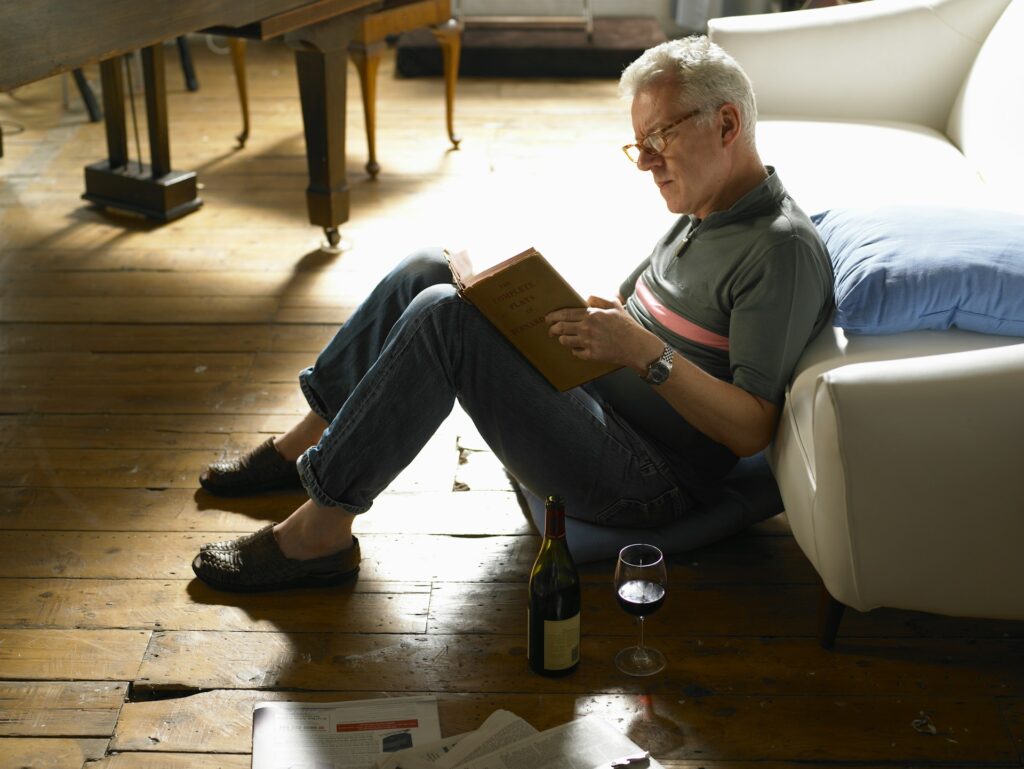We’re often told to stick with it when it comes to hobbies.

The idea is that if you ever loved painting, writing fanfiction, or playing the guitar, you’re somehow expected to stay loyal to it for life, or it wasn’t real. The problem with that believe is that it’s completely natural to outgrow the things that once felt central to who you were. It’s not because they stopped being valuable, but because you’re a different person now. Here’s why stepping away from a hobby isn’t quitting—it’s growth in disguise.
1. You’re not the same person you were when you started.

That version of you who used to love scrapbooking, skating, or learning Korean during lockdown? They were valid, of course, but you’ve changed, and it’s okay if that hobby no longer clicks the way it used to. Growth doesn’t mean abandoning joy—it means redefining it as you go.
Sometimes, we hold on out of nostalgia more than passion. But if your current self feels disconnected, that’s not failure—it’s awareness. You’re simply outgrowing a fit that used to work. And that’s a win in its own right.
2. Making space for new things is part of growing up.

There’s a quiet cost to keeping everything you’ve ever enjoyed on rotation. Your time and energy are limited, and clinging to hobbies that no longer light you up can quietly block something new from coming in. Letting go doesn’t erase the joy you once got from it. It just says, “I trust myself to evolve.” Making space allows the next version of you to find their thing, without dragging the old one behind like a backpack full of half-finished projects.
3. Nostalgia can blur how you actually feel now.

You might love the idea of who you were when you first started—free-spirited, creative, hopeful. However, it’s worth checking in: do you love the hobby, or do you just miss who you were when it made sense? Memory can be a little too kind sometimes. It’s okay to hold gratitude for something without needing to keep recreating it. The version of you who used to love it wouldn’t want you forcing it now just out of guilt.
4. Burnout can show up even in things you used to love.

When a hobby starts feeling more like a burden than a break, that’s your brain waving a quiet red flag. The thing that once recharged you might now be adding to your mental clutter, and it’s okay to step back when that shift happens. It doesn’t mean the spark is gone forever. Sometimes, you just need distance, or your creativity is craving a new outlet. The idea that love for something has to be eternal doesn’t leave much room for real life.
5. You don’t owe consistency to your past self.

Staying loyal to a hobby for the sake of “not giving up” is one of those subtle pressures we put on ourselves without noticing. But clinging to something just because a younger version of you loved it can quietly hold you back. Your present self deserves a say. You’re allowed to choose new outlets, new goals, and new ways to relax, even if it means walking away from something that used to define you. It’s not flaky. It’s honest evolution.
6. Skill doesn’t equal obligation.

Just because you were good at something doesn’t mean you have to keep doing it. People might hype you up—“You’re so talented!”—but if it’s no longer fun or fulfilling, that compliment can start to feel like a trap. Your talents are tools, not life sentences. You’re allowed to pivot or pause without feeling like you’ve wasted anything. Mastery is great, but not at the cost of your peace—or your curiosity about trying something new.
7. Interests are allowed to be seasonal.

Some hobbies are here for a reason or a season, not a lifetime. Maybe it helped you cope with something, connect with someone, or just made a specific phase feel lighter. That still counts. Just like your clothes change with the weather, your creative outlets can shift with your emotional climate. Nothing is more freeing than realising it’s okay to let hobbies come and go without attaching your worth to their permanence.
8. You don’t need to “finish” a hobby to move on.

There’s a weird guilt around unfinished hobbies, as if walking away halfway through a painting, novel, or crochet project means you failed. But hobbies aren’t assignments. You don’t owe anyone a final product. Sometimes, the value was in the process, not the result. If it brought you joy for a while, that’s enough. Moving on doesn’t mean it was pointless. It means it did what it needed to—and now you’re ready for something else.
9. Outgrowing something doesn’t mean you’ll never circle back.

Just because you’re not into it now doesn’t mean it’s gone forever. Plenty of people fall back in love with an old hobby years later, from a completely different angle. Time can turn absence into appreciation. You’re not closing a door—you’re just not walking through it right now. The beauty of hobbies is that they don’t expire. They wait patiently. And they’ll still be there if and when it ever feels right again.
10. Letting go helps you figure out who you are now.

Sometimes you can’t fully hear your current self until you stop trying to keep up with all your old ones. Hobbies can become part of our identity, but they’re not the whole story. Who you are now might want something totally different, and you won’t know what that is until you give yourself permission to explore it.
Letting go of a former passion isn’t about erasing it—it’s about opening yourself up to growth. You’re not walking away from yourself. You’re walking *with* yourself, into whatever’s next. And that’s more than okay—it’s kind of the whole point.


